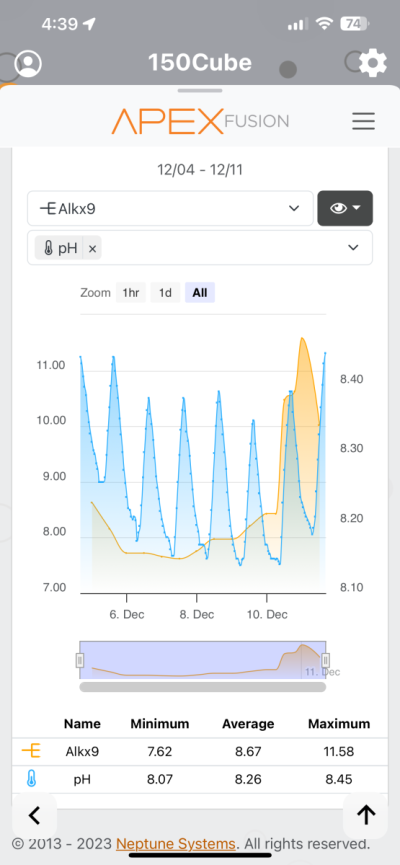I have seen alk swings blamed for every type of coral malady. Especially " burnt tips" and STN/ RTN. Personally, I haven't seen these issues. I monitor reef aquariums by pH and have systems ranging ranging 7 to 12 dkh depending on fish load and ambient Co2. If a doser goes out and the pH drops, I have no issues making a corrective dose and making a sudden adjustment from 7 to 10dkh. I have recently heard many anecdotes from experienced aquarists state that they made similar corrective adjustments with no effect on the coral. So maybe the concensus towards alk swings is changing?
My question is: is there a chemical reason why an alk swing would harm corals?
People are leary of doing water changes with certain salts because of high alk. Personally, I have never seen a coral skip a beat doing a water change with salt at 11dkh, even if the system is running at 7dkh. I understand that some corals are accustomed to captive conditions and more tolerant than others. I just feel like this topic is confusing newer aquarists that are chasing alk stability and I'm haven't heard a good reason why.
My question is: is there a chemical reason why an alk swing would harm corals?
People are leary of doing water changes with certain salts because of high alk. Personally, I have never seen a coral skip a beat doing a water change with salt at 11dkh, even if the system is running at 7dkh. I understand that some corals are accustomed to captive conditions and more tolerant than others. I just feel like this topic is confusing newer aquarists that are chasing alk stability and I'm haven't heard a good reason why.



















